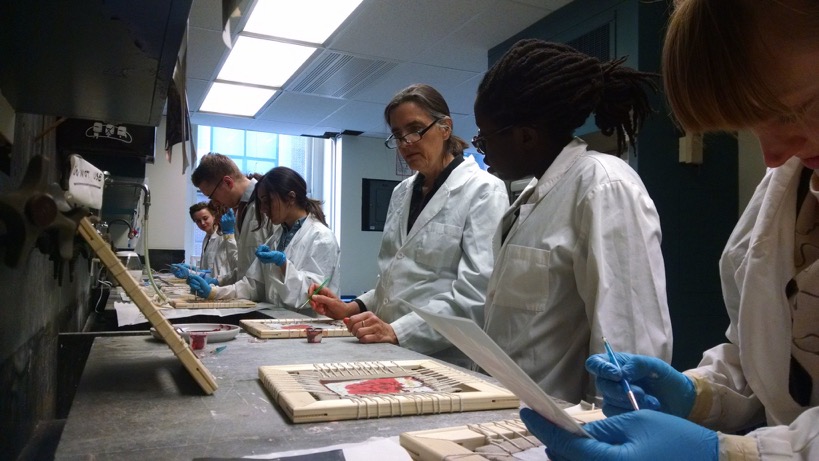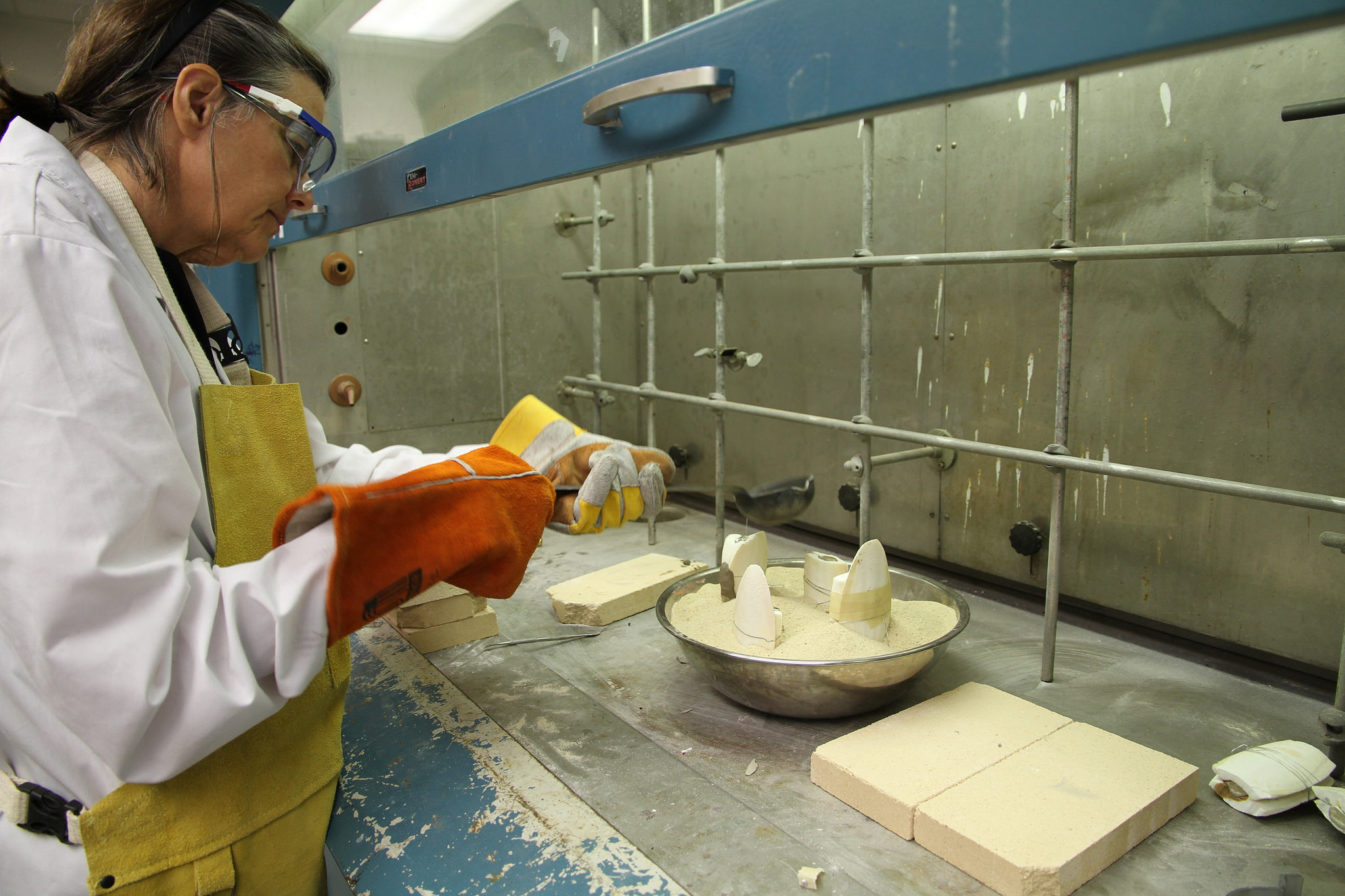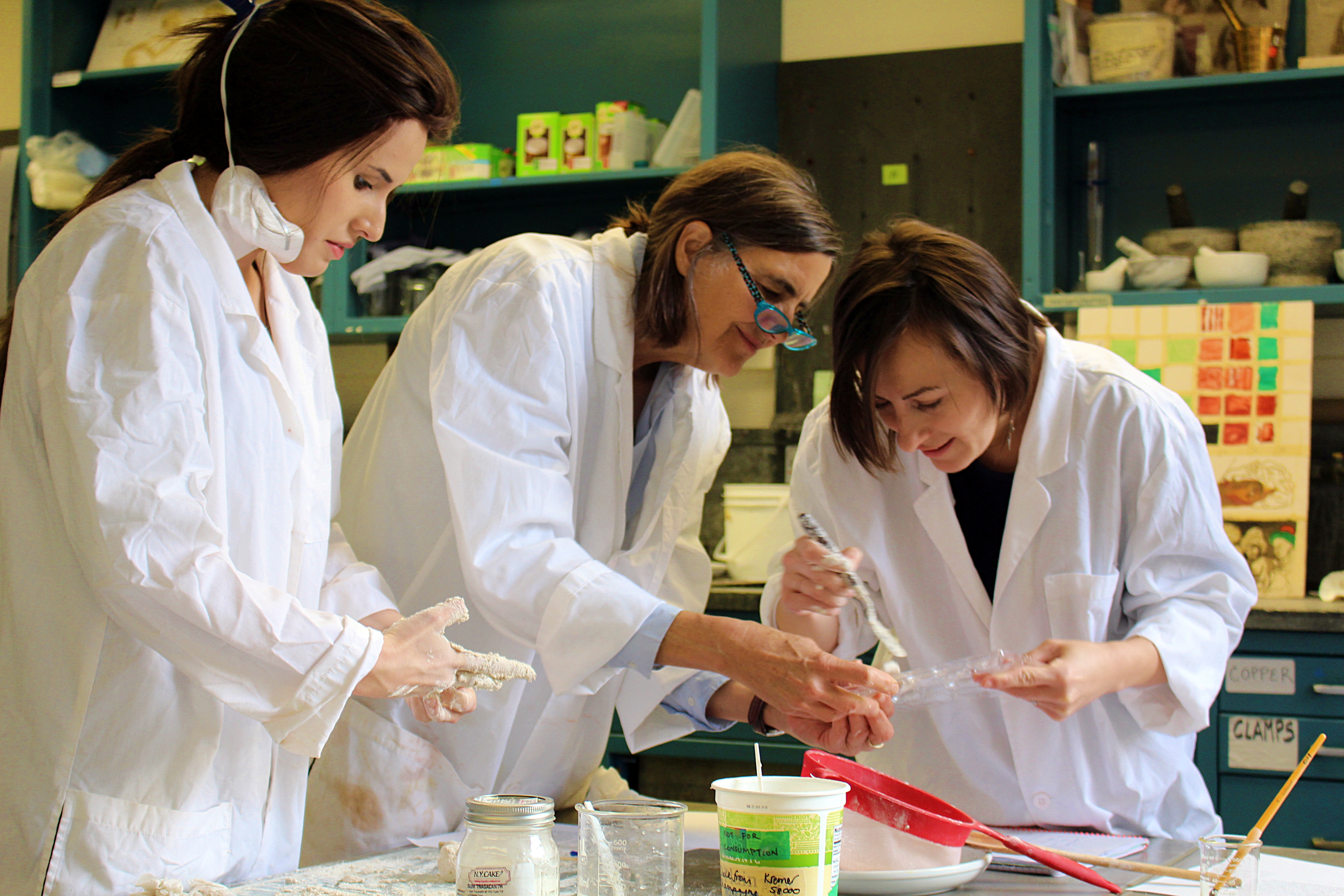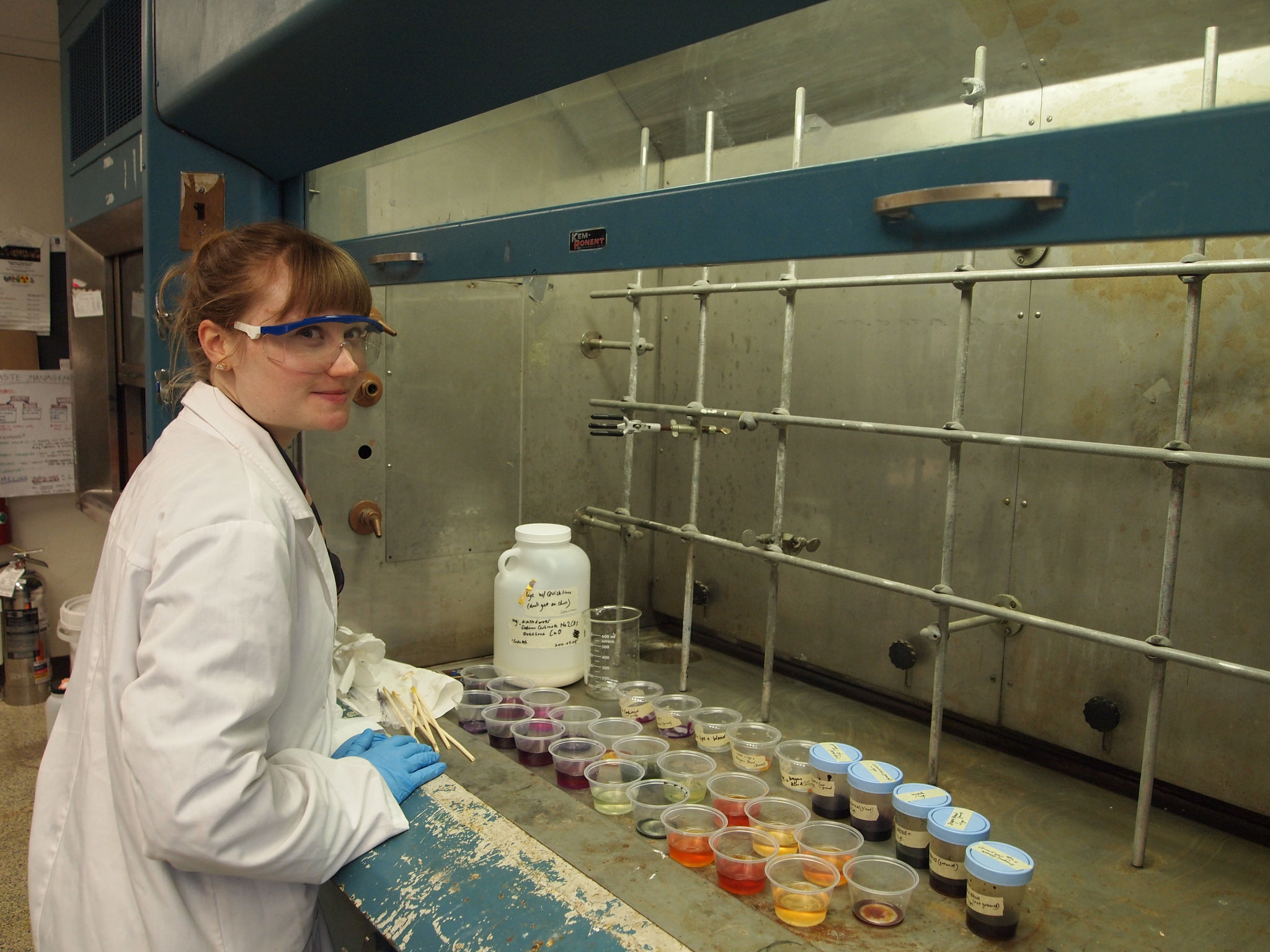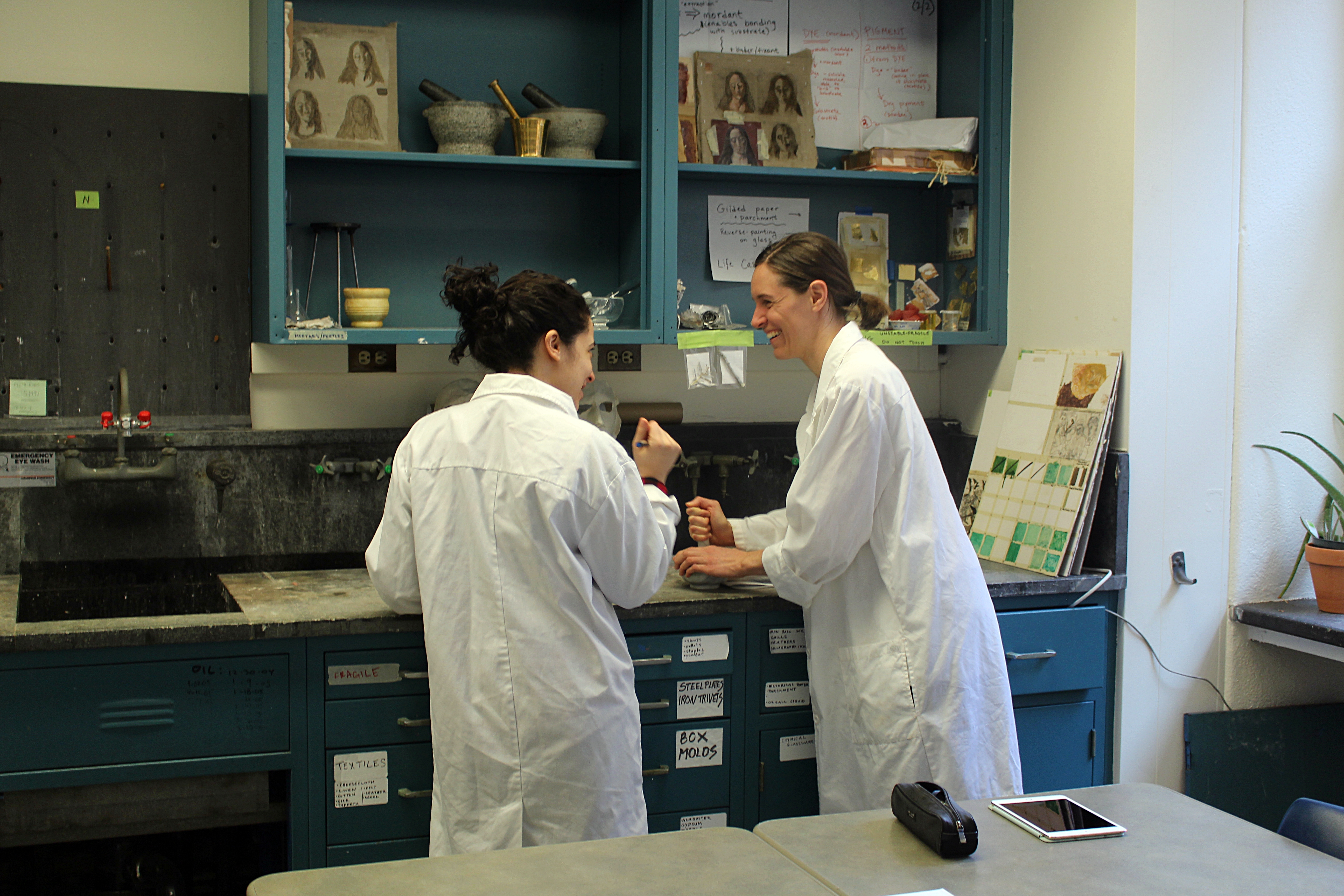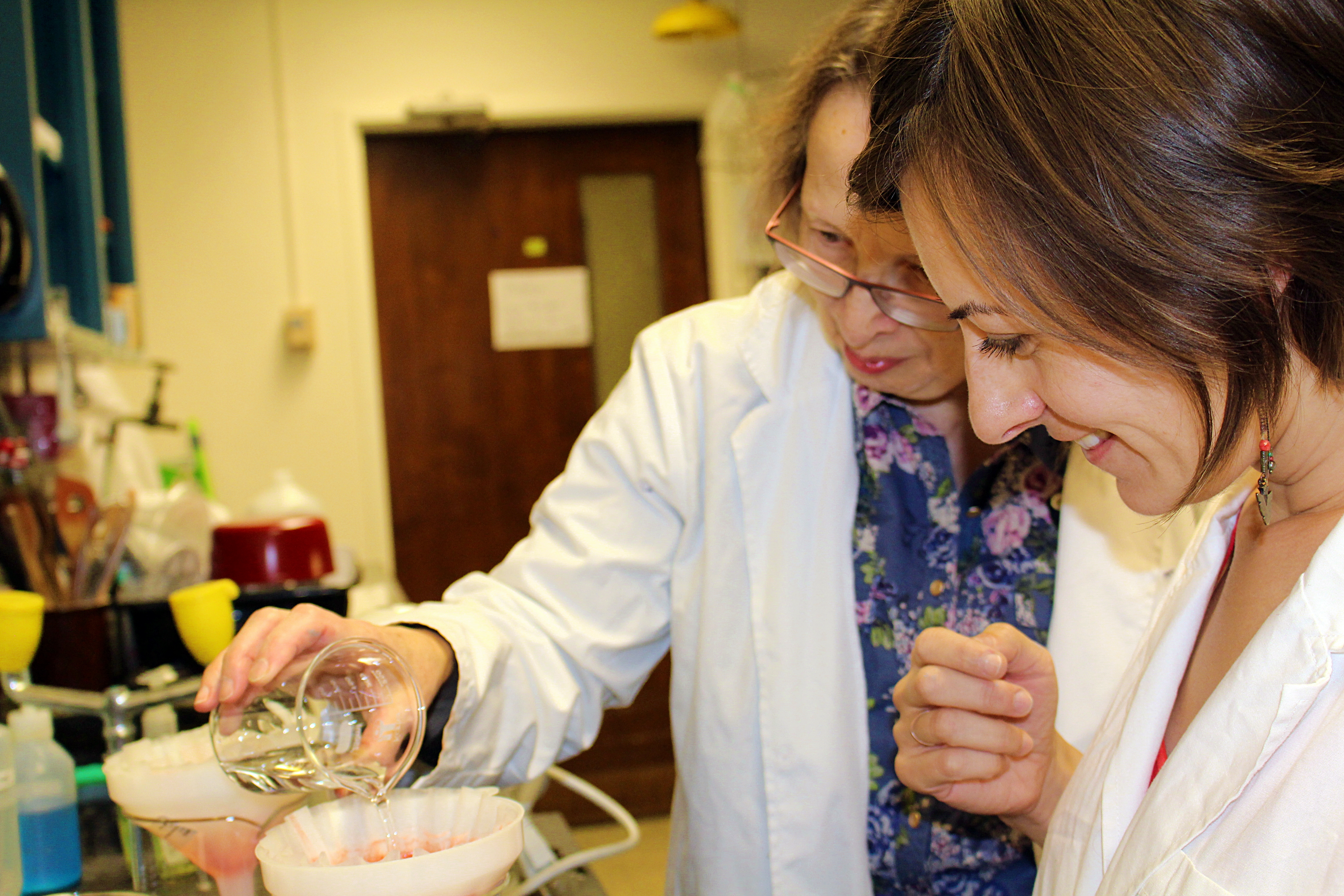Hands-on research into, and reconstruction of, the materials and techniques described in the BnF Ms. Fr. 640 are carried out through seminars held in a laboratory at Columbia University, led by Seth Low Professor of History Pamela Smith. The laboratory seminar HIST G8906: Craft and Science: Making Objects in the Early Modern World is offered to humanities, social science, and science advanced undergraduate and graduate students. The course combines historical research on fifteenth- and sixteenth-century sources with hands-on work in the laboratory carrying out historical reconstruction research.
The Laboratory Seminar is open to advanced undergradute and graduate students from Columbia and its consortial partners. The course includes discussions of primary and secondary sources drawn from material culture studies, anthropology, history of science and technology, and art history, as well as hands-on work in the laboratory.
Using the transcription and translation produced in the Paleography Workshops, the Laboratory Seminars focus each year on a set of related techniques described in the manuscript. In 2014-15, the focus was on Moldmaking and Metalworking (e.g., portrait medal casting, sand casting, and box molding); in 2015-16, it was on Colormaking (including dyes, pigments, artificial gems, coloring woods and metals, and varnish making); in 2016-17, Practical Knowledge: Vernacular Natural History, Practical Perspective, Optics, Mechanics, and Medicine; in 2017-2018, the theme was Ephemeral Art; in 2018-2019, the theme was Printmaking, Inscription and Impression.
Work in the laboratory each semester begins with skill building activities, then expert makers lead the students in hands-on research for two weeks. These experts are artists, conservators, or craftspeople who have studied historic techniques in areas relevant to the manuscript. Their expertise provides a crucial link to the text for the students and scholars working in the laboratory, and their contributions are invaluable for assisting in performing reconstructions and in the critical annotation of the manuscript.
The process of translation from words into actions, and the multiple issues it raises, provides valuable lessons about translation itself (in its many meanings in this project), about experiential knowledge, and about methodologies of research in history to the students in the courses, and, more generally to scholars in multiple fields. The participants’ grappling with these issues are reflected in electronic field notes, images, and video footage as part of the diverse media of the digital edition of the manuscript. An electronic environment being developed in consultation with the Digital Humanities Center at Columbia University Libraries will facilitate the group work of transcription and translation, as well as allow students and visiting expert makers to record the results in words and images of their work in the laboratory.
Follow our progress in the lab on our Twitter feed and our photo repository on Flickr.
Read student essays as part of our digital critical edition, which is openly accessible at https://edition640.makingandknowing.org.
Activity sheets, assignments, and reconstruction protocols are available via the “Sandbox.”
Syllabi
- Fall 2014 Moldmaking and Metalworking Syllabus
- Spring 2015 Moldmaking and Metalworking Syllabus
- Fall 2015 Colormaking Syllabus
- Spring 2016 Colormaking Syllabus
- Fall 2016 Practical Knowledge Syllabus
- Spring 2017 Practical Knowledge Syllabus
- Fall 2017 Ephemeral Art Syllabus
- Fall 2018 Impression Syllabus
- Summer 2021 Hands-On History Syllabus
- Fall 2021 Hands-on History Syllabus
- Spring 2022 Hands-on History Syllabus
- Spring 2023 Hands-on History Syllabus






